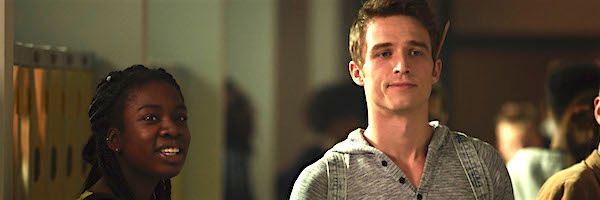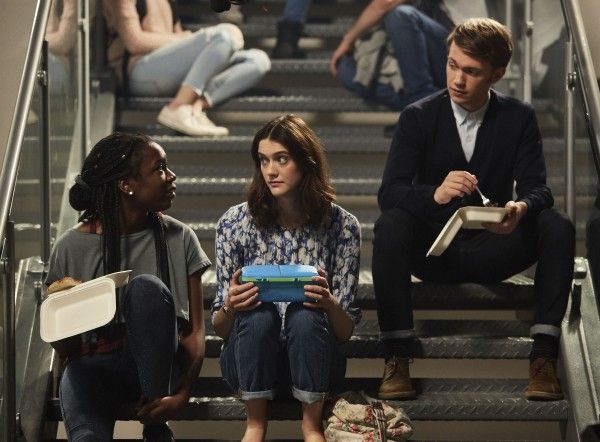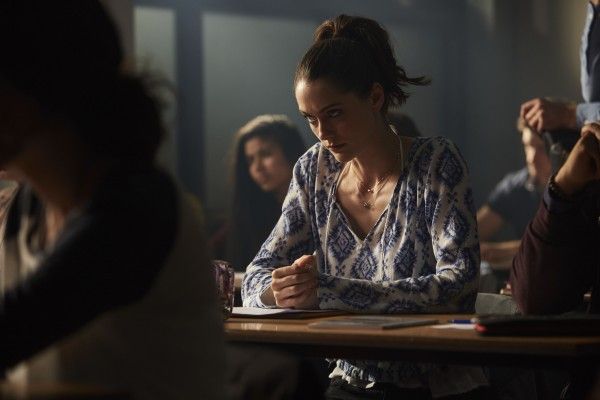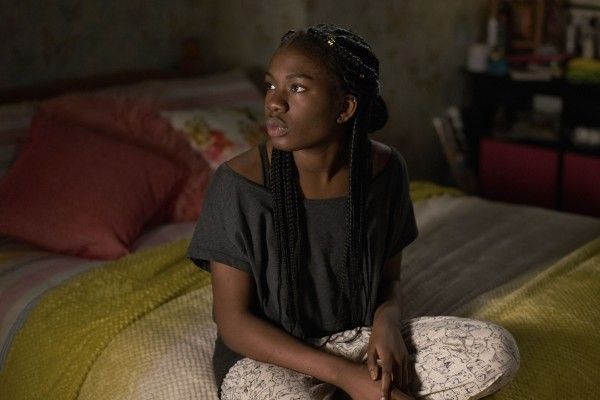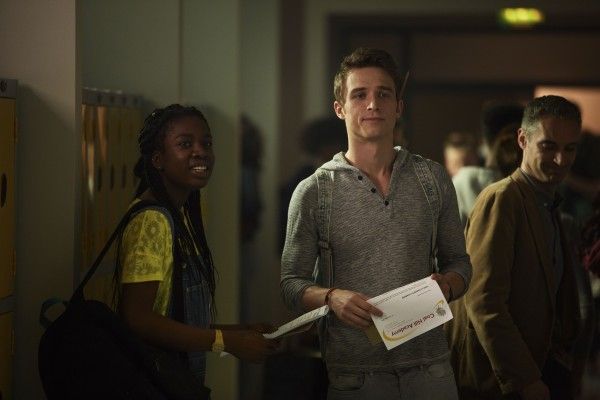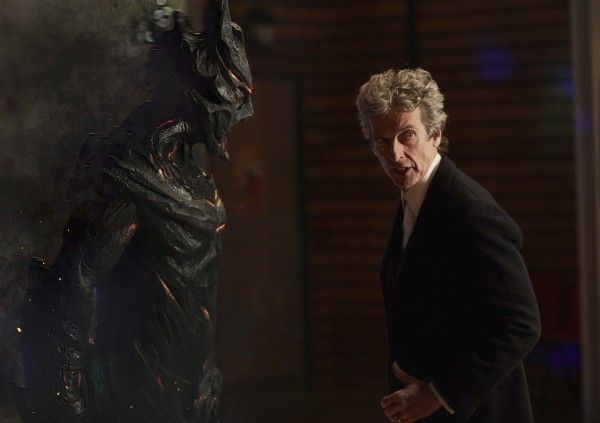As a spinoff of beloved British science fiction series Doctor Who, Class has both the advantage of an already established world and setting and the potential disadvantage of audience expectations about what kind of show it will be. Unfortunately, at least in its first season, Class does little to take advantage of the former and instead, often stumbles into the pitfalls of the latter. Class is a spinoff that doesn’t seem all that excited to be associated with or inspired by its source material. It’s more teen horror than the science fiction implied by its shared fictional universe.
Ostensibly, Class is a show about the people and places the Doctor leaves behind. Specifically: the students of Coal Hill School, a setting you will recognize as companion Clara Oswald’s recent place of work. As a NuWho theme, "The Chaos Left In The Doctor’s Wake" has worked well. It makes us look at our protagonist-hero in a new, less flattering light and feel a bit of empathy for all of the people the Time Lord doesn’t take with him or, even worse, all of the people whose lives he screws up or even causes to end.
Unfortunately, commitment to this theme is half-hearted. It’s as if Patrick Ness — the bestselling novelist of young adult novels like the Chaos Walking trilogy, who wrote and executive produced the entire first season — had a show (or, perhaps, a book idea) in mind before Doctor Who producers approached him, and subsequently tried to stuff it into a Doctor Who spinoff box. It just didn’t quite fit, instead fluctuating somewhere between the show it wanted to be and the show it felt it was supposed to be, yet never quite attaining the shape of either. An apt outcome, perhaps, for a show about adolescents attempting to define their own identities.
There’s something comfortably old-fashioned about Class’ storytelling, which might be an odd thing to say about a show that has a gay-alien-prince plotline and more blood splatter than some slasher films manage. Social progress and body count aside, though, most of the episodes feel like something you’ve probably already seen. This was the kind of storytelling Buffy was doing 20 years ago and the kind of storytelling Teen Wolf is doing right now. If you’re into those shows and want more, then Class is for you. If you’re looking for more of the science fiction idealism that Doctor Who tends to provide, stick to the new season. Here be dragons (sometimes literally) and they will unceremoniously kill people.
At its core, Class has a fresh-faced, eager group of newcomers who all tend to fit into teen show archetypes, albeit with the kind of diverse, realistic casting than is seen too rarely — at least on American TV. There’s Tanya (Vivian Oparah), the wunderkind who’s younger and smarter than the rest of her classmates, but lonely, too. There’s April (Sophie Hopkins), the nice girl who is sick of everyone underestimating her because of her niceness. There’s Ram (Fady Elsayed), the jock who initially doesn’t seem to care about anything besides being the best soccer player he can be.
Things all go to hell when refugee alien prince Charlie (Greg Austin) enrolls at Coal Hill with his reluctant protector Miss Quill (Katherine Kelly) in tow. They are on the run from the Shadow Kin, an evil alien race that managed to wipe out both their races. Upon the Doctor’s suggestion (delivered via a brief cameo from Peter Capaldi in the first episode), the group joins forces to try to protect the school from all manner of alien creatures and take down the Shadow Kin. It’s not easy or without its considerable cost, which is perhaps the best part of this show.
Actually, that’s not true. The best part of this show is Miss Quill. By the end of the first episode, you’ll probably be dying for the kids to go off to their B plots and for Ms. Quill to become the unabashed protagonist of this show. She is part of the Scooby Gang not because she has some undying commitment for the mission or to these kids, but because she has been forced to be part of the team — and she will roll her eyes and make snarky comments in the middle of battle to make sure the teenaged messes she’s lumped in with never forget it. Giles, Miss Quill most certainly is not. The "over-it" quality of her character is without a doubt the most consistently delightful part of this series.
Another highlight comes in the third episode, “Nightvisiting,” an unexpectedly poignant story that drops the Shadow Kin and the evil gym teacher plots for a more nuanced depiction of grief, demonstrating that Class is at its best when it slows down and doubles down on the more grounded, relatable struggles of its characters. As is the case with good teen horror dramas that has come before it, Class’ scariest, most interesting villains aren’t alien monsters that wipe out entire civilizations, but rather the real-world problems like losing a parent, a girlfriend, or losing the time and space to simply be a kid.
Class didn’t do so well in the U.K. ratings, but the BBC is no doubt waiting to see how Class does in the much larger America market through its American affiliate before renewing or canceling the show. Though I’m critical of the spinoff’s shortcomings, I hope it makes it to a second season. Not only does Class end on a cliffhanger, but if this show could work through its identity issues, it could be a truly great addition to the Doctor Who universe. It just needs to do a little growing up first.
Rating: ★★★ Good — Proceed with cautious optimism
Class premieres April 15th on BBC America

